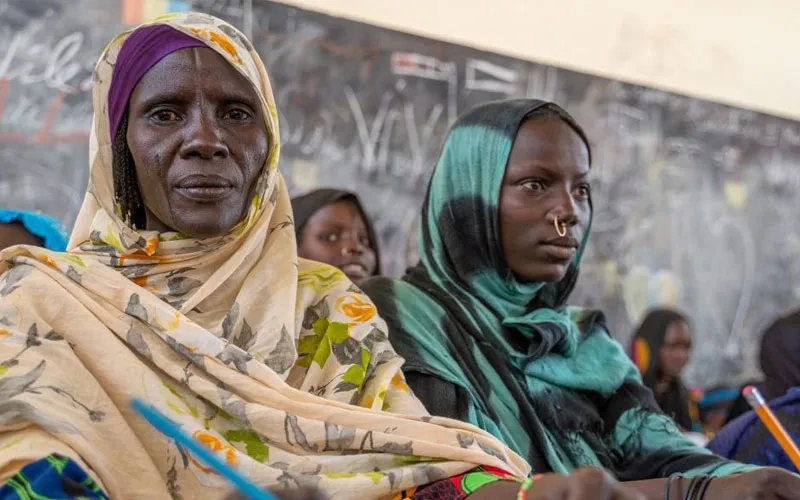The officials of the Jesuit entity say that over 20 additional community members who are aware of the importance of education such as young boys, elderly women, or middle-aged men, have also requested to join the program.
In the September 6 report, the Director of Fourkouloum school who is also one of the teachers of JRS literacy courses says that the program has attracted many young women who have expressed interest in improving their literacy skills.
“There is a big demand for alphabetization courses,'' the Director of the Jesuits entity say, and add, “We would like to have an extra teacher to allow more students to come.”
On his part, the deputy Director of the school says that “most of the women attending the literacy courses are married or divorced. They are very motivated. They stopped going to school because their families married them.”
The deputy Director who is teaches JRS literacy courses highlights the importance of the program, saying that just like boys, girls also have a right to advance in their studies.
The girls, he says, “have the same right to have an education as the boys. If they don’t go to school, they will struggle in their families, or they are exposed to early marriages.”
In the report, Hadidja, aged 18 who is a beneficiary of JRS literacy courses narrates her experience and how she ended up in the refugees’ camp.
“Two years ago, my family and I left my village because Boko Haram attacked my village. In the Fourkouloum camp, two friends told me about JRS’ literacy courses. I decided to learn to read and write,” Ms. Hadidja is quoted as saying.
She adds, “Before, it was hard for me. I knew nothing. Nowadays I know how to calculate and write well. I also started understanding the money notes, calculating, and even greeting in French. This course improves us each day.”
“There are many women [in class] who never went to school; now they understand the importance of school. In Fourkouloum, I saw people are interested in education, so I started to be interested too,” she continues.








